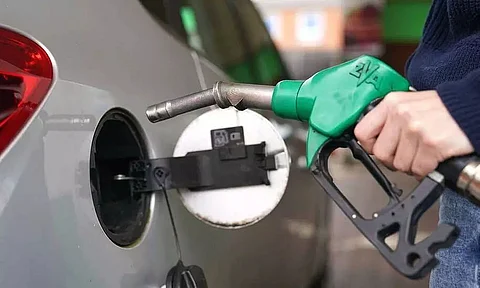
- Home
- Live Blog
- Breaking News
- Top Headlines
- Cities
- NE News
- Sentinel Media
- Sports
- Education
- Jobs

ISLAMABAD, Sept 1: Life continues to be posing more and more challenges to the people of Pakistan as millions suffer the devastation caused due to floods while others are succumbing to the rising inflation in the country, making it close to impossible to make daily expenses meet.
In a latest tough decision by the Shehbaz Sharif government, prices of petroleum products were raised about Rs 3 per litre despite a decline in global oil rates.
The decision to increase prices is being done mainly because of the exchange rate fluctuation and an increase in petroleum levy in line with the commitment with the recently revived bailout loan programme by the International Monetary Fund (IMF).
According to the notification issued by the Finance ministry, per litre price of petrol has been increased by Rs 2.07, high speed diesel (HSD) by Rs 2.99, kerosene by Rs 10.92 and light diesel oil (LDO) by Rs 9.79.
"In the fortnightly review of petroleum products' prices, the government has considered the recommendation to make partial increase in the prices of petroleum products in line with the change in the international oil princes and fluctuation in the exchange rate," the finance ministry's notification stated.
"Petroleum levy has been kept at minimum in order to provide relief to the consumers," the notification added.
The revised prices have been kept from September 1 to September 15, 2022.
The increase in price comes in the midst of a massive increase in prices of vegetables, which have shot up by at least 200 per cent. This has happened after the catastrophic floods, prompting an immediate increase in prices of tomatoes, potatoes and other vegetables across the country, have destroyed over 20 million acres of crop fields with ready crops.
The Shehbaz Sharif government started raising fuel prices from last week of May this year as it worked towards meeting the demands of the IMF for resumption of the bailout package.
The price hike has been the main issue between Pakistan and the IMF as part of the agreement to withdraw subsidies in oil and power sectors and to reduce the fiscal deficit.
In parallel to the price hike in petroleum products, the government has been consistently increasing per unit price of electricity also while hefty amounts in fuel adjustment charges also left locals in a state of shock.
Locals have protested against the government's decision to impose hefty fuel adjustment charges in electricity bills as many refused to pay the bills, slamming the government allegedly for not caring about how they have made lives of the locals "miserable".
On the other hand, the government is bound under the IMF agreement to gradually increase the PDL on oil products to a maximum of Rs 50 per litre to meet the target of collecting Rs.855 billion during the current financial year. (IANS)
Also Watch: